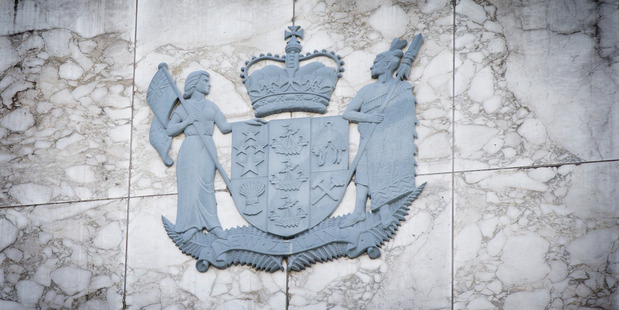The Royal Commission report should have centered on what message Tarrant heard when he visited the mosque that motivated him to return with his weapon.
The Royal Commission report should have investigated the Dunedin Mosque video that Tarrant’s supposed manifesto claims was his motivation.
Christchurch mosque has long been a haven for Islamic terrorists, and the Royal Commission could have investigated any number of NZ based Islamic extremist organisations that promote following the greatest warlord of all time, yet they didn’t. Likewise, they could have reviewed how our Halal Industry discriminates to fund terrorism.
Instead the Royal Commission took their lead from the Islamic Community and sought to silence non-Muslims (kaffir) speak out against their terrorist supporting actions. And they worked to silence anyone who questioned the official narrative.
Since we were blamed, should we have our own enquiry to determine what happened?

Ron Mansfield QC told a coronial hearing Brenton Tarrant asserts the commission’s report on New Zealand’s worst mass shooting contains factual errors.
The Australian white supremacist is serving a life sentence without parole for killing worshippers at the Al Noor Mosque and Linwood Islamic Centre in 2019.
Mansfield said his client was questioned for five hours as part of the inquiry but did not receive a transcript of his interview or a draft of the report’s findings, “even though it dealt with him in much detail and can be seen to be critical of his conduct for obvious reasons”.
Mansfield said his client only received a copy of the Royal Commission’s final report last week.
“That logically means he’s had an inability to be able to correspond with the commission regarding mistakes of fact that he asserts are made within the report, facts that are relied on by the royal commission for its recommendations,” he said.
“Not only will he correspond through counsel with the royal commission in an effort to ensure that errors of fact are corrected, he proposes to judicially review the royal commission in relation to the way in which its conducted its work and in particular some of its factual findings and recommendations.”
Mansfield said the Department of Corrections had denied his client access to material he should have received as part of the coronial inquiry.
While there was a need for secrecy for national intelligence and security reasons, Mansfield said some aspects of the commission’s work could have been done in public.
He said the families of those killed should also have been more involved in the commission of inquiry.
Mansfield argued it was a “failure in the exercise of natural justice” and suggested the coroner put a “red line through the report”.
“This proceeding provides the opportunity for all interested parties including Mr Tarrant to be heard, to test the evidence, so as to ensure that errors of fact which he instructs have been made by the royal commission are not made in this jurisdiction,” he said.
Earlier, Human Rights Commission lawyer John Hancock urged the coroner to put the victims at the heart of her inquiry.
“Significant weight should be accorded to the views of the affected families, survivors and witnesses as to issues of scope. Their participation was not central to the royal commission’s inquiry but it is much more central to this particular inquiry,” he said.
Grieving families, Islamic organisations and police are among those who have also given submissions to Coroner Brigitte Windley over three days of hearings to determine the scope of her inquiry.
She told the hearing they had sought answers and accountability.
“I’ve heard the submissions of interested parties inviting me to be brave, to be fearless and to play my part to heal the deep wounds from the March 15 atrocities,” she said.
Tarrant pleaded guilty and in 2020 was sentenced on 51 counts of murder, 40 of attempted murder and one of terrorism.
He opened fire inside the Al Noor Mosque while broadcasting the attack on Facebook Live, killing 44 people, two of whom died of their injuries in hospital.
The terrorist then drove to the Linwood Islamic Centre where he shot a further seven people dead.
The government has pledged to implement all 44 recommendations of the Royal Commission, which identified a host of failings including a lack of proper gun licence checks and a preoccupation with Islamist extremism by counter-terrorism officials.
